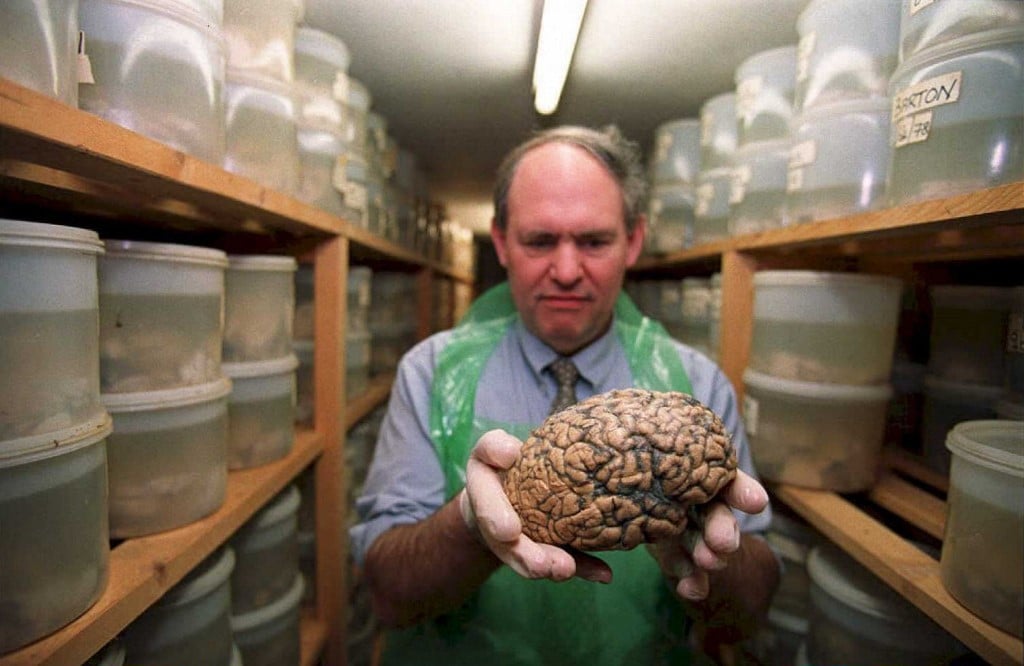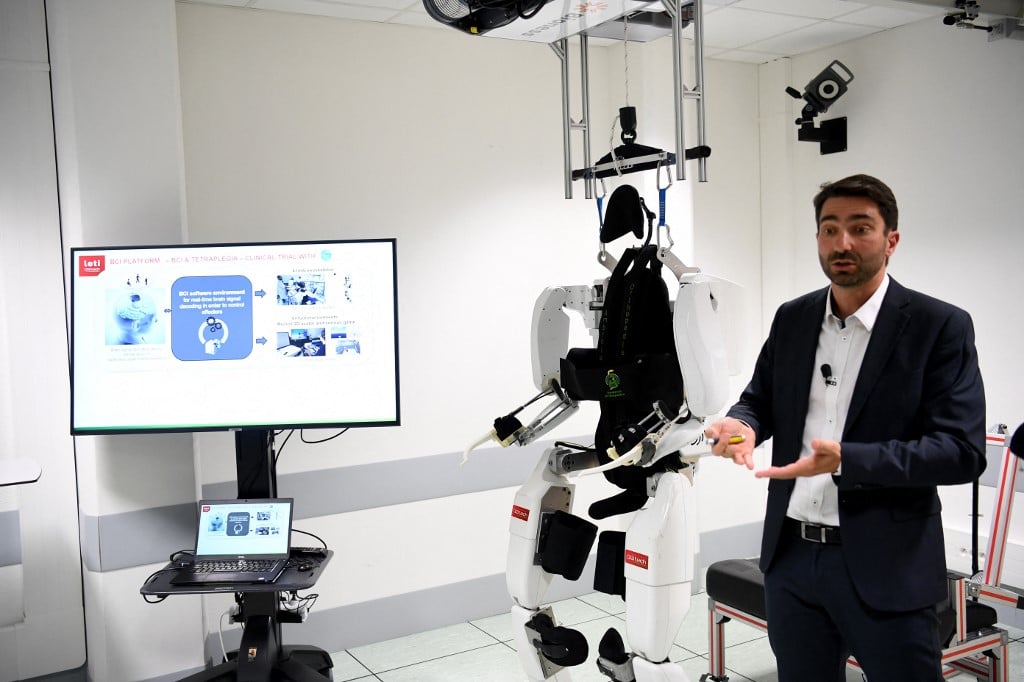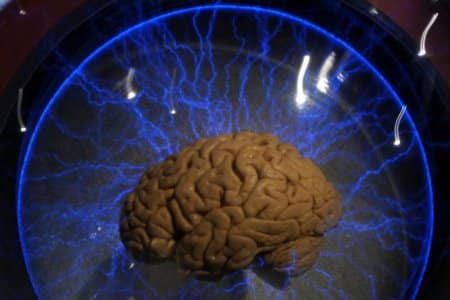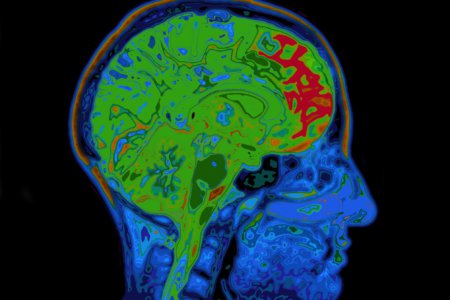
The brain is like a computer for the rest of your body. It’s like a computer, but better — and one of the reasons for this is it can level up through brain exercises.
The best brain exercises make the most of what we know about this mighty organ thus far to help us feel smarter, happier, and healthier.
The human brain is more complex and elaborate than any other structure known to mankind on this earth.
About 60% fat, and 40% combination of water, protein, carbohydrates and salts, this roughly 1.3kg (three pounds) organ sends and receives messages from the senses and body, and sends messages back to the body.
But what sets us apart from machines, and makes us light-years away from ChatGPT and other AI, is how our brain lets us think and experience emotions — this is the root of human intelligence.
This ability to think, feel and engage in physical activity is what we refer to as our mind. Whereas the brain is the physical organ that makes these functions possible.
And there are probably more functions your brain is capable of that have yet to be discovered.

Though just a 1.3kg mass of protein and fat, scientists are constantly discovering its remarkable cognitive capacity. Source: Andrew Winning/AFP
Your brain can do more than you think
Even today, scientists and doctors continue to discover the miraculous ways our brains function.
If you need proof, consider the blood-brain barrier.
In the 19th century, scientists conducting experiments realised that when they injected dye into the bloodstream, it coloured every organ except the brain and spinal cord.
Again, when scientists injected the same dye into the spinal fluid, it merely tinted both organs.
What did this mean? The brain knew how to protect itself without us ever needing to do anything.
It formed a dexterous and intelligent way to shield itself from harmful substances, pathogens, and toxins that could get in from the bloodstream but allowed oxygen and nutrients to pass through.
Advances have gone from this to helping paralysed monkeys (and humans) walk again, allowing partially paralysed people to walk and ride bicycles again, and restoring a crippled hand.
In 2022, some paralysed subjects could swim, walk and cycle within a single day of treatment
While these breakthroughs took teams of the best brains (pun intended) in the world, there are ways for regular people like us to improve our brain power.
And one of the best ways to do that is through brain exercises.

French project manager Gullaume Charvet presents the brain-controlled exoskeleton that allowed a disabled patient to walk again at the biomedical research center Clinatec in Grenoble on October 7, 2019. Source: Jean-Pierre Clatot/AFP
A brain exercise centre
When David McCullar‘s company went bankrupt, he lost his job and moved over 1,000 miles for a fresh start.
A few years after that, he suffered a terrible back injury, only to return home and find his parents in the middle of a divorce. This resulted in him being diagnosed as clinically depressed.
When medicine and drugs failed, he had nothing to turn to except a podcast. Strangely enough, this podcast said he didn’t need medicine; he just needed brain exercises.
After travelling across the country to discover more about this, he opened Inception in 2018, the first mental health gym in the US.
People go to a gym to get physical and better their body. Inception works the same way, McCullar says.
“You don’t have to come in with a diagnosis. You come in because you want to better your psyche,” he says.
Thanks to science-backed brain exercises, there’s no need to travel to Michigan to join Inception.
Free and can be done anywhere, the following are the best brain exercises that can help everyone feel, study and work better.

Playing an instrument or listening to it can stimulate your brain. Source: Sergei Supinsky/AFP
10 best brain exercises to help you feel, study and work better
1. Listen to or play music
Every time a musician picks up an instrument, there are literally fireworks going off all over their brain.
Neuroscientists have monitored this in real-time, using fMRI and PET scanners to detect wavelengths and activity that lit up certain areas of the brain.
The same was observed when scientists monitored people listening to music.
The brain processed the sound, took it apart and put it all back together in one unified accord – all within a split second. How amazing is that?
Music, whether you are playing or listening to it, engages every part of your brain, with the former requiring motor skills, while listening allows you to impact the memory power of the brain.
If you have always wanted to take up an instrument, here’s your chance to start:

Working on puzzles is a great brain exercise, it reinforces connections between brain cells. Source: Tallis/AFP
2. Solve a jigsaw puzzle
Solving a puzzle activates up to eight cognitive functions at one time, says Patrick Fissler, a researcher in neurology.
“It’s such a focused task that it can also relax your mind, which is important for psychological health,” he says.
When you look at a puzzle piece, the information from your eyes is passed on to the occipital cortex (which is responsible for how we perceive colour, form and motion) before going to the dorsal and ventral pathways (the formal is involved in spatial processing, attention, and online control of actions, while the latter in processes related to object recognition).
Both process information differently, which is a huge task for the brain as it quickly pieces together what you need to know to place the puzzle correctly.
“Training the brain takes variation and is important. It’s better than watching television because that makes your brain inactive,” Fissler explains.

Learning a new language is one of the best brain exercises as it increases the volume and density of gray matter. Source: Ahmad Sahel Arman/AFP
3. Learn a foreign language
People who speak two languages have been found to have more neurons (composed of a cell body), and dendrites, which are the connections between neurons — what we call “grey matter.”
Bilinguals also have increased white matter (a system of nerve fibres which connect all four lobes of the brain) integrity.
Picking up a new language still benefits us from some of the neurological changes that happen to speakers of a second language.
Learning a new language also grows brain regions associated with memory and spatial navigation.

Getting involved in team sports is a fun way to exercise and maintain brain health. Source: Harry How/Getty Images/AFP
4. Exercise and more exercise
It is common for people to be fearful of memory loss and thinking skills, regardless the age.
This is why brain training programmes have become increasingly popular.
People come in with memory or concerns over decision-making, says neurologist Dr. Alvaro Pascual-Leonev, director of the Brain Fit Program at Harvard-affiliated Beth Israel Deaconess Medical Centre.
However, people have improved from a few different therapies, including physical exercise.
Exercise increases activity in parts of the brain that have to do with executive function and memory and promotes the growth of new brain cells, says Dr. Pascual-Leone.
So, what are you waiting for? Get sweating. It doesn’t have to be vigorous physical activity; you can try out other forms of lesser strenuous exercise too:
- A quick jog around the block
- A badminton game with your mate
- A few laps in the pool on a hot day
- Cycle to class, why not.
“But most of us don’t work hard enough to realise the benefit. You have to push yourself, and that requires being cleared to exercise,” he says.
5. Play video games
This may shock you, but researchers have found that video games impact the brain and can cause changes in different regions of the brain.
According to Frontiers in Human Neuroscience, video games have been praised or demonised without any real data to back them up.
Instead, video games have proven to improve sustained attention and selective attention.
“Furthermore, the regions of the brain that play a role in attention are more efficient in gamers compared with non-gamers, and they require less activation to stay focused on demanding tasks,” says author Marc Palaus
What’s more, the part of the brain responsible for visuospatial skills also increases in size and competence by playing video games.

Cooking improves sensory memory, making it a good and wholesome brain exercise to do at home. Source: Luca Sola/AFP
6. Take a cooking class
Cooking not only evokes your sight but smell, taste, and touch senses as well — strengthening and challenging the frontal lobes and all their related functions.
Even when pairing foods together, it requires sensory acuity and sensory memory.
Generally, one would begin with prepping the ingredients either by memory or by following a recipe.
As you begin to cook, your taste buds come alive; the smells, sounds and sight of the food allow you to refine your fine motor skills, improve sequencing skills and enhance concentration.

Challenge your mind with some chess. Source: Badru Katumba/AFP
7. Take up an engaging hobby
When we say engaging, we mean something that challenges the brain and encourages it to thrive.
Most hobbies activate the sensory-motor cortex located in the middle of the head, says Dr. Lori A. Russell-Chapin, a professor from Bradley University.
Picking up a new hobby can not only help you make more friends but also keeps the brain fluid and adaptable, she adds.
“Hobbies often generate neuroplasticity and neurogenesis, both of which keep brain neurons growing and thriving.”
Even if you are in your golden years, try these hobbies to help you focus better:
- Learn how to play chess
- Start knitting
- Solve a Sudoku challenge
“People can pick up hobbies at any age. We can build new neuronal pathways until we die,” says Dr. Russell-Chapin.

Being left-handed gets you to several no. 1 hits. Source: Valerie Macon/AFP
8. Are you a right-hander? Let’s try your left then
Practising how to write using your non-dominant hand may make you seem like a bumbling fool, but the level of concentration that comes with this practice is phenomenal.
It will challenge your brain because you are doing something that should come easily to you but doesn’t.
This results in mental sharpness; you can do this with sports or even simple tasks like brushing your teeth.
Neurobiologist Lawrence Katz suggests trying this strengthens your mind.
“Using your opposite hand can be so challenging, and it can be a great way to increase brain activity,” he says.

Yoga acts as an instant cognitive boost and helps relieve stress. Source: Alberto Tamargo/ Getty Images/AFP
9. Get into a sun pose
Did you know there is a specific type of yoga called super brain yoga? It is knowns as Thoppukaranam in Tamil.
The yoga techniques used are a form of brain training that can help anyone increase mindfulness, focus, and memory power, all while supporting cognitive functions.
Don’t worry, folks. This is something that everyone can do. It simply involves a squatting exercise.
It is said that this type of yoga synchronises the brain waves while simultaneously energising and activating your brain.
Like all the other types of yoga, it is a powerful mindfulness practice and can help with breathing, reducing stress, and lower stress hormones in the body.
10. Do math
Yes, you’ve heard us right. Some of you may be running for the hills by now, but hear us out.
Mental math can amplify your brain muscle. Why’s this? Maths takes your brain to places where no other activity can.
The ability to solve a math problem is a highly creative skill, says Ian Stewart, director of the mathematics awareness centre at Warwick University.
“The research shows that maths is good for all of your brain, not just the parts that other activities cannot reach,” he says.
In fact, the Japanese have an ancient secret — i.e. the use of the abacus for better cognitive memory.
Using the beads with your fingers to calculate and then putting on your thinking cap is what they believe can create a mind-body connection that boosts brain power.










